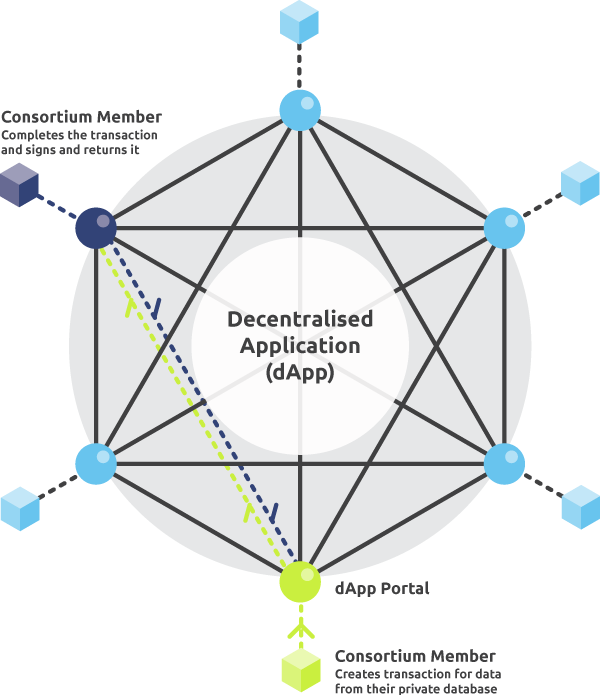Blockchain technology has transformative potential for any business or industry which is transaction-centric between multiple parties.
The promise of security and trusted validation has many companies looking for ways they can integrate this new technology into their businesses. Many of these companies are also realising the potential blockchains have for facilitating platforms that enable them to share their data with traditional competitors.
Instead of fighting for the same space, global enterprise companies are coming together to form multi-member consortiums that share data. These members now have a way to shift and trade their resources for greater benefit.
Big Enterprise, Big Data
The excitement around blockchain technology shows no sign of peaking soon. With several high profile institutions announcing joint ventures into producing consortium platforms they’re opening the gates for blockchains to become mainstream.
Technology companies, including titans Microsoft and IBM, are in high demand for project partnerships with major companies from many different industries.
Banking corporations like HSBC and Deutsche Bank are seeing the potential and partnering with other banks. They aim to develop a platform that reduces friction within transactional processes and ease cross-border trading. Their distributed database will work with all entities and will include smart contracts to streamline transactions and validate them autonomously. The removal of a central authority not only dramatically increases security but ensures that all members have reliable and trustworthy copies of the database.
A bigger consortium in development includes industry behemoths like Intel, American Express, Baidu, and Cisco. Together they’re sharing even greater amounts of data to form a transactional system that will work across many platforms.
Smarter Resource Management
The key thinking behind these projects is the realisation that competitors can achieve more by embracing a ubiquitous and self governing platform. Where competing for the same resources devalues the effort for both businesses, this can be compensated for by the sharing of extraneous data.
With this kind of thinking in place, a consortium dApp (Decentralised Application) becomes a trading post for clients. Business A may have a client outside the boundaries of their services but they submit the details to the dApp’s distributed database anyway. Business B can assist this client so they withdraw the details and perform the required services. All parties are satisfied and benefitted. In this scenario a ‘client’ can be a physical person, online protocol, transaction, or anything else that can be recorded as data.
The New Frontier
Blockchain technology delivers security, reliability, and transparency to this process. Each consortium member retains their own internal database and only access the dApp when communicating with the consortium. The dApp itself keeps a record of all the transactions made by members on the private (or public) blockchain. All of these transactions are validated by nodes connected to the dApp, each containing a copy of the current block. These copies protect the blockchain from corrupt data and hacking attempts and therefore provide a concise and trusted record of all transactions, effectively decentralising the authority.
Smart contracts are custom developed programs residing on the blockchain that execute whenever specific conditions are met. This autonomous contract fulfillment combined with consensual validation endows blockchain powered solutions with unrivalled speed and robustness.
PAC combines years of digital strategy and solutions implementation with an in depth knowledge of Ethereum blockchain. We recognise the potential power in blockchain technology and with our dedicated team of developers and advisors believe there is a solution for every business - from small to enterprise, globally.





